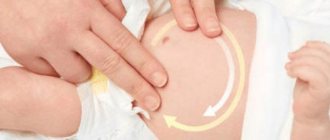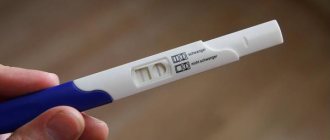Let's first figure out what hiccups are and where they come from? All people have a diaphragm between the abdominal cavity and the chest - a section of muscle tissue, it contracts and in connection with this you can hear a hiccupping sound, accompanied by a spasmodic movement of the child's chest. This condition is called hiccups.
In general, it is a normal physiological state of a small organism that is just getting started. In the overwhelming majority, it is not a symptom of a disorder and goes away quite quickly on its own. Its duration can be about an hour, the main rule is calmness and the ability to help you cope faster and easier.
If you are very worried about the condition of the baby, hiccups last a long time and occur quite often, and the child is restless and excited - tell your pediatrician about your worries.
Causes of hiccups in newborns
The vast majority of babies go through bouts of hiccups. It is a completely natural process caused by the physiology of a newborn child. Most often, this symptom is observed in the first months of a newborn’s life, and by the age of one year its manifestation becomes much less common.
Doctors are inclined to believe that there are several main causes of hiccups:
- Formation of the baby’s gastrointestinal tract. The child’s body is just beginning to adapt to external environmental factors, trying to get used to new food, which inevitably leads to some discomfort in the digestive system;
- Overfeeding;
- Incorrect application during breastfeeding. The child swallows a lot of air;
- A fast and impulsive flow of milk from the mother's breast. The baby often and quickly swallows milk, its flow puts pressure on the diaphragm and thereby provokes muscle contractions;
- Formula feeding. It takes longer to digest than breast milk, and as a result, the baby spits up more often, and it is this irritation of the esophagus that can provoke the occurrence of hiccups in newborns after feeding;
- Thirst. The mucous membrane in the mouth dries out and this can cause hiccups in newborns;
- Colic;
- Hypothermia;
- Fright. With loud sounds, in someone else's company and environment, the child becomes nervous and muscle contractions will reflexively appear.
Classification
Based on the etiological factor, the following forms of hiccups are distinguished:
- physiological;
- pathological
In addition, there are the following types of this symptom:
- referred hiccups – manifests itself as a symptom of gastroenterological diseases;
- toxic – is a consequence of poisoning with drugs, chemicals, toxins;
- central – indicates pathological processes in the brain, central nervous system;
- peripheral - the occurrence of this form of hiccups is caused by damage to the vagus and phrenic nerves.
Only a doctor can determine exactly what form of the symptom occurs after examination and diagnosis.
How to get rid of hiccups in a newborn, preventive measures
If hiccups are a fairly common occurrence in a newborn, then parents should think about the presence of possible provoking factors leading to it and reduce them to a minimum:
- Feed the baby more often, but in small portions;
- Choose a comfortable bottle and an anti-colic nipple to minimize the entry of air into the stomach when feeding;
- Feed in a calm environment;
- Learn on your own how to “correctly” breastfeed or contact a lactation consultant;
- Choose high-quality baby formulas. For example, Kabrita mixtures based on goat milk are softer and therefore easier to digest casein, valuable goat milk whey and modern, very useful functional ingredients that promote comfortable digestion for the baby and reduce the frequency of constipation, flatulence and regurgitation;
- After eating, hold the baby vertically in a “column” for 10-15 minutes, thereby helping him burp;
- Establish a comfortable temperature and humidity regime in the room;
- Do not overheat or overcool the child;
Constipation
What is expressed in
During the first month of life, the baby is able to empty the intestines after each feeding. However, by the 4th month, the frequency of stools decreases to 2–4 times a day. At the same time, the “baby” soils diapers more often than the “artificial” one, since mother’s milk is absorbed faster. It also happens, however, that a breastfed baby defecates every other day, or even less often. If at the same time his stool is soft and nothing bothers the baby, then there is no reason for concern. This means that milk is well absorbed by his body.
Symptoms:
- The child is capricious and cries a lot;
- The baby often pushes, but the “result” is zero;
- Any attempt to empty the bowels is accompanied by a cry;
- The feces are hard, either pea-shaped, or the first portion of it looks like a “cork”, followed by a mushy mass.
Causes:
- When breastfeeding, constipation can be caused by the mother's addiction to protein foods (cottage cheese, meat), flour products (white bread, pastries), coffee or tea;
- With artificial feeding - the wrong choice or incorrect preparation of the formula.
How to help your baby:
- Mom should minimize the consumption of the products listed above (except for meat, which must be eaten in quantities of at least 100 g per day);
- Eat more foods with fiber (vegetables and greens);
- Do a tummy massage;
- If the reason is in the mixture, agree on a new one with the pediatrician;
- Occasionally, the child can be given an enema. But laxatives - even in minimal doses - should not be given to babies! In any case, if your baby's condition causes you concern, you should consult your doctor.
When to worry:
- Reduces the number of wet diapers;
- The child's weight decreases.
All this suggests that the baby does not receive enough nutrition.
Hiccups in newborns: what to do
Usually, hiccups do not cause any particular trouble or significant discomfort for a healthy baby; they do not last long and soon go away on their own. But, if you want to help your baby overcome this condition faster, there are some tips on how to stop hiccups in a newborn:
- If you are feeding your baby, give him a couple of sips of plain water;
- Remove unnecessary irritating factors and noise from outside. Turn off the TV, close the windows, dim the bright lights, turn off the music, etc.;
- Wash with warm water or bathe the baby;
- Do a tummy massage or light exercises;
- Dress if the room is cool;
- Help the baby calm down. Hug him, distract him, sing a lullaby, etc.
Folk methods of disposal
Traditional medicine offers its own simple methods of combating hiccups in infants:
- Chamomile tincture. The herb is brewed strongly, given to the child as a drink at night, or buried under the tongue 2-3 times a day for constant hiccups. Acts as a sedative.
- Sugar syrup. A piece of sugar is diluted with water. Apply a couple of drops of syrup to your baby's tongue. The muscles should relax, the diaphragm will calm down.
- Tasty food. Grandmothers explain the occurrence of hiccups by hunger, so they advise giving the baby a snack of applesauce, followed by cookies for 6–8 months.
If hiccups are accompanied by other warning symptoms (vomiting, abdominal pain, dizziness) or last more than 1 hour without a break, consult your pediatrician.
Prohibitions for hiccups
All of the above measures are quite enough to cope with hiccups quickly, but the main component is the calmness of the adult. Don’t panic and run around the child with all possible ways of helping, give the baby a little time and the body will return to normal. Some parents try to help their child using “adult” methods, which is strictly prohibited and leads to negative consequences!
What not to do:
- You should not scare your child with any sounds. This will not help with hiccups, but it may well cause mental disorders and subsequently lead to stuttering;
- Do not let them suck on sour candies; we are, of course, talking about older children;
- Do not knock or hit on the back/chest. Children have fragile skeletons and may experience negative consequences.
Diagnostics
First of all, the doctor conducts a physical examination of the child together with the parents, since during this diagnostic stage it is necessary to determine the following:
- how long ago the symptoms began to appear and with what frequency;
- how the child eats, what regimen he follows and what is included in his diet;
- Do you have any chronic gastroenterological diseases?
- whether there was a history of abdominal surgery.
In addition, the following laboratory and instrumental studies are carried out:
- general and biochemical blood test;
- general analysis of feces and helminths;
- Ultrasound of the abdominal cavity;
- pH-metry;
- PCR;
- ELISA;
- X-ray examination of the esophagus.
What is ELISA
The results of the study make it possible to determine the cause of hiccups and prescribe effective treatment.
We turn to specialists
As already mentioned, in the vast majority of all cases, hiccups are a normal and natural phenomenon that goes away on its own with age and does not require medical intervention. However, situations may arise when a child has a hard time with hiccups, the discomfort and even pain that it causes is visible, and accompanying negative symptoms are observed:
- Hiccups are present every day and after feeding. In addition, it is accompanied by weight loss/loss, significant regurgitation, and vomiting;
- The child is breathing heavily;
- It causes anxiety and crying, blueness of the nasolabial triangle and marbling of the skin;
- Constant bloating and sharply changed bowel movements.
In such situations, consultation with a specialist is necessary.
With age, the child’s gastrointestinal tract will improve, the functioning of the digestive tract will return to normal, and frequent hiccups will no longer bother the baby.
The mother’s peace of mind is the main guarantee of the baby’s success and health, so it is very important not to be nervous herself, but to calmly assess the situation and help the baby survive this period. Share on social media networks
Congenital pathologies of the gastrointestinal tract as a cause of regurgitation
- Hiatal hernia. This is a congenital defect expressed in the underdevelopment of the structures of the diaphragm. Regurgitation begins within a couple of weeks after birth, lasts a long time, occurs immediately after feeding, the baby stops gaining weight or even loses weight. To identify this diagnosis, an x-ray examination is performed.
- Relaxation of the cardia (or chalasia of the sphincter that separates the esophagus and stomach). If it is not completely closed, then milk is released unchanged from the stomach into the esophagus. This type of regurgitation appears in the first days after birth and can be severe, especially if the baby has not burped up air. The child is lethargic, sucks poorly, sleep is disturbed, and there is no weight gain. X-ray examination can confirm the diagnosis.
- short esophagus (congenital anomaly) - the stomach is located above the diaphragm due to the fact that the esophagus does not correspond to the size of the chest.
If a mother is alarmed by the baby’s regurgitation and at least one of these signs is present, this is a reason to consult a doctor immediately.
- the child spits up often and a lot;
- bile and blood are present;
- regurgitation began after six months or did not go away by this time;
- poor weight gain, lethargy, rare urination.
- restless behavior
- increase in body temperature,
- skin rashes.
The formation of a mechanism that prevents regurgitation begins in the last 3 months of the mother’s pregnancy and continues after the birth of the baby.
Reflux is a mechanism of regurgitation, antireflux is the opposite phenomenon.
The antireflux mechanism is a complex system that can be damaged by various factors. Often this damage is observed in premature babies or children with developmental delays, as well as during difficult pregnancy, cesarean section, difficult childbirth, hypoxia and increased intracranial pressure.
If these factors are present, in addition to regurgitation, the baby will have signs of a nervous system disorder: mild excitability or vice versa, the child will be very lethargic, sleep will be disturbed, there will be tremor of the arms and legs, the presence of hypertonicity and hypotonicity.
As a rule, to determine the cause of regurgitation and prescribe appropriate treatment, ultrasound, x-rays, and computed tomography of the abdominal cavity are used.
Preserving the health of the child is the main task of parents. If your baby’s behavior, sleep, or health have worsened and you are concerned, consult a doctor. Consulting a specialist will never be superfluous. There are a lot of reasons for regurgitation, as a rule, they are all due to physiology, but only mom and dad are able to notice in time that something is going wrong and correct the situation in time without harm to the health of the little person.











